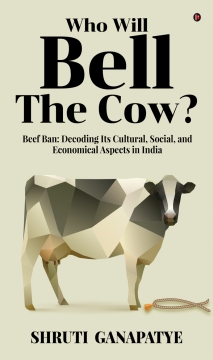
- Discover books
- For Writers
-
For Writers
-
Indie Author Championship
-
Challenges
Writing Contests
- Get Started

"It was a wonderful experience interacting with you and appreciate the way you have planned and executed the whole publication process within the agreed timelines.”
Subrat SaurabhAuthor of Kuch Woh Pal -
-
-
IN
- India
- Singapore
- Malaysia
- 0
Shruti Ganapatye
Shruti Ganapatye is a Mumbai-based journalist writing extensively on political and social issues for the past 18 years. She has worked with ‘Mumbai Mirror,’ ‘Asian Age,’ ‘Press Trust of India,’ ‘Divya Marathi,’ ‘Loksatta,’ and ‘Maharashtra Times,’ covering stories across Maharashtra. Shruti’s core strength remains an innate understanding of Maharashtra politics, governance, and social issues. She has been covering politics since 2009 and capturing stories about transformations in state policies due to changes of powers. She has worked across beats covering issues at tRead More...
Shruti Ganapatye is a Mumbai-based journalist writing extensively on political and social issues for the past 18 years. She has worked with ‘Mumbai Mirror,’ ‘Asian Age,’ ‘Press Trust of India,’ ‘Divya Marathi,’ ‘Loksatta,’ and ‘Maharashtra Times,’ covering stories across Maharashtra. Shruti’s core strength remains an innate understanding of Maharashtra politics, governance, and social issues. She has been covering politics since 2009 and capturing stories about transformations in state policies due to changes of powers. She has worked across beats covering issues at the intersection of the social and economic milieu of Maharashtra. She has travelled across Maharashtra’s hinterland highlighting rural issues in mainstream media. She is a thinking journalist who believes in going beyond headlines, and he-said, she-said journalism. Her reporting, over the years, has not only led to social change but pushed lethargic government machinery into action. Her extensive coverage of Bhima Koregaon violence, Sanatan Sanstha’s ideology, a beef ban in Maharashtra, farmers’ suicide in Maharashtra, urban poverty and marginalised communities in Mumbai were well received. She is now an independent journalist focussing on long-form writings and research.
Read Less...Crop your profile image

Who Will Bell The Cow?
Books by Shruti Ganapatye
The word ‘cow’ rocked India after 2014 when news related to the beef ban, mob lynching, violence poured out almost every day. The cow’s status was suddenly elevated and her sacredness surpassed all limits. Self-styled vigilantes called gau rakshaks took the law into their hands creating terror in the country and threatening minorities and marginalised communities. The book “Who Will Bell The Cow?” tells every possible story about the rise of cow poli
The word ‘cow’ rocked India after 2014 when news related to the beef ban, mob lynching, violence poured out almost every day. The cow’s status was suddenly elevated and her sacredness surpassed all limits. Self-styled vigilantes called gau rakshaks took the law into their hands creating terror in the country and threatening minorities and marginalised communities. The book “Who Will Bell The Cow?” tells every possible story about the rise of cow politics in recent times. It connects history with the present, making sense of ongoing violence in the name of the cow and beef ban. It uncovers the ‘sacred’ layers around the cow to show the real motive behind the movement. The data compiled from various sources about crimes related to the cow slaughter and beef ban and its socio-economic impact on various industries allied to cows offers more insight for the readers to draw their own conclusions. There is a caution against the movement that might lead to the extinction of the cattle. In the end, it has posed a question for readers if our diverse food culture is at peril under the guise of homogenisation.

Are you sure you want to close this?
You might lose all unsaved changes.
Select from one of our global stores to continue
 India
India
 Singapore
Singapore
 Malaysia
Malaysia
Warning Message
The items in your Cart will be deleted, click ok to proceed.











